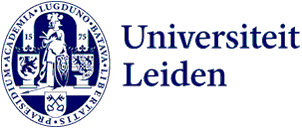Professor Maarten Kunst’s coronavirus year: ‘Stressful, but more efficient’
In mid-March 2020, the global coronavirus outbreak changed everything in the Netherlands. Staying at home as much as possible and the 1.5 metre rule became the standard. One year on, we reflect on the past year with four Leiden Law School ‘insiders’. What kind of year did they have? And what are their thoughts on the future? This week: Professor of Criminology Maarten Kunst.

In April 2019, Kunst was appointed as professor and his inaugural lecture was planned more than a year later, at the end of May 2020. But measures to combat the coronavirus meant that this had to be postponed for almost six months. All in all, ‘I found it a very stressful year’ he says.
In March last year, Kunst was Programme Director of the bachelor’s and master’s programmes in criminology. Certainly in the first months of the coronavirus crisis, this meant a constant stream of meetings and phone calls to keep everything on track. ‘It was very tough, because in that period I was also due to teach a lot myself and suddenly our children were at home all the time. Luckily, my wife had the brilliant idea of drawing up a schedule which helped reduce tension. We took it in turns to either work a half day or help the children with their schoolwork. But the schedule didn’t give us any extra time, so in the evenings and weekends I often had to work as well to catch up on everything. I stopped doing that after my inaugural lecture on 26 October, because I noticed that it was all becoming too much.’
'I find it hard to switch off straight away.'
Working from home, Kunst did of course miss the personal contact with colleagues and students. He also noticed that the line dividing work and home life started to become very blurred. ‘Quite often, I’d finish a meeting and a few minutes later I’d be outside kicking a ball around with my kids. I find it hard to switch off straight away and give my wife and children the attention they deserve. That said, there are advantages to working from home. You don’t have to travel half a day, for instance to attend a meeting somewhere else in the country, and the daily commute to work is no longer necessary. Working at home has also forced me to be far more efficient, for example planning meetings better and delegating more work to colleagues. I hope to benefit from that in the future.’
Kunst also hopes that working from home will become a more permanent feature. ‘Once we are “allowed”, of course I’ll go back to working in Leiden, but I don’t think I want to be at the KOG 4 to 5 days a week. I also don’t want to do away with online meetings and teaching completely. I really think that we can benefit in the future if we still work online to a certain extent.’
Shorter academic year?
Kunst also believes we could have profited from other post-crisis developments. ‘For instance, I think it’s a pity we didn’t consider introducing a shorter academic year. What’s wrong with having an academic year that runs from 1 October to mid-July? It’s fairly common in other countries to have a shorter academic year. It would have given many colleagues a lot more extra time for vacation, research and teaching preparations.’
Like Kunst, for many people at the faculty it has been a year of just ‘surviving’. ‘I really would like to say how much I appreciate all the hard work by colleagues and students this past year. Even with all the ups-and-downs, it meant that teaching and research could still go ahead. We should be very proud of ourselves and I think we actually deserve a bit more credit for that – from the outside world too.’
